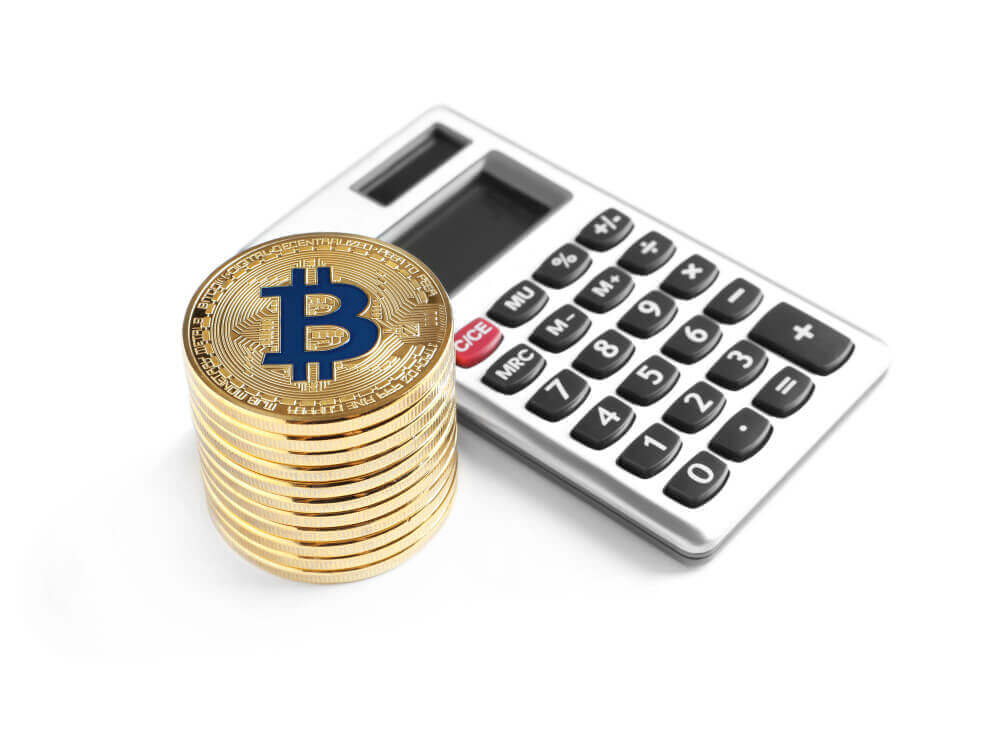Demystifying Cryptocurrency Wallets: A Comprehensive Guide
In the past few years, we have seen cryptocurrencies continue to gain traction, with the number of cryptocurrency wallets rising from 3.16 million in 2015 to over 85 million today, according to data from Statista. At its peak on May 19, 2021, we also saw the 24-hour trading volume for the entire crypto market reaching over $500 billion.
Today, with a market capitalization of over $1.2 trillion, the industry continues to be one of the largest financial markets in the world, with an estimated 115 million cryptocurrency wallets worldwide as of March 8, 2023, according to Statista. This number has steadily increased in recent years as more and more people become interested in cryptocurrencies.
Table of Contents
Toggle
What Is a Cryptocurrency Wallet?
A cryptocurrency wallet is an application that serves as a wallet for your cryptocurrency. People often call it a wallet because you use it similarly to a physical wallet where you keep cash and cards. However, rather than containing these physical items, the wallet holds the passkeys necessary for authorizing cryptocurrency transactions and furnishes the interface for accessing your crypto.
A cryptocurrency wallet contains two types of keys: a public key and a private key. A public key is like your account number that you share with others to receive payments. A private key is like the password that you use to authorize transactions. Anyone who knows your private key can control your coins, so keep it safe and secret.
It also does not store your coins, as they are bits of data stored on the blockchain. Instead, it reads the blockchain to show your balances and transactions and allows you to send and receive coins by signing them with your keys.
There are different types and categories of cryptocurrency wallets, each with its features and levels of security. Some of the main ones are:
- Custodial vs. non-custodial cryptocurrency wallets: Custodial wallets are wallets where a third party, such as an exchange or a service provider, holds your keys and manages your funds for you. Non-custodial wallets are wallets where you hold your keys and fully control your funds.
- Hot vs. cold wallets cryptocurrency wallets: Hot wallets, which connect to the internet, enable you to access your funds anytime, anywhere. These wallets offer convenience and ease of use, yet their constant internet connection makes them more susceptible to hacking and theft. On the other hand, cold wallets disconnect from the internet, enhancing the security of your funds. These wallets serve ideally for storing large amounts of crypto for extended periods, though they offer less convenience and accessibility.
- Web wallets, mobile wallets, desktop wallets, hardware wallets, and paper wallets: These are different types of wallets based on their form factor and connection to the internet. They have pros and cons, which we will explain in detail in the following sections.
In this article, we will explore each type of wallet in depth, compare their advantages and disadvantages, and help you choose the best one for your needs. We will also provide tips and best practices for securely and responsibly using cryptocurrency wallets.
Custodial vs. Non-Custodial Wallets
One of the main distinctions between cryptocurrency wallets involves the issue of control over the private keys and the funds associated with them. Specifically, we categorize cryptocurrency wallets as either custodial or non-custodial, terms that reflect this control aspect.
In a custodial wallet, a third party, such as an exchange or a service provider, holds your keys and manages your funds for you. Using this kind of wallet implies that you entrust this third party with the safety and accessibility of your assets. Furthermore, you must abide by their rules and regulations, including verifying your identity, paying fees, and complying with withdrawal limits.
Some of the pros of custodial wallets are:
- They are easy to use and convenient, especially for beginners needing to become more familiar with crypto security practices.
- They offer password recovery and customer support if you lose access to your account or encounter any issues.
- They may provide additional features and services like trading, lending, staking, or earning interest on your crypto.
Some of the cons of custodial wallets are:
- They are vulnerable to hacking, theft, or fraud, as they are centralized targets for attackers who may try to breach their systems or compromise their employees.
- They may freeze, confiscate, or lose your funds due to technical glitches, legal disputes, regulatory changes, or insolvency.
- They may compromise your privacy and anonymity, as they may collect your personal information and track your transactions.
Users hold their keys and control their funds entirely in a non-custodial wallet. This arrangement means these individuals are responsible for securing and backing up their keys. It also offers them more freedom and flexibility, allowing them to use their funds without intermediaries or restrictions.
Some of the pros of non-custodial wallets are:
- They are safer and more secure than custodial wallets, as they are decentralized and immune to hacking, theft, or fraud.
- They give you full ownership and sovereignty over your funds, as no one can access them without your permission or authorization.
- They protect your privacy and anonymity and do not require you to provide personal information or reveal your identity.
Some of the cons of non-custodial wallets are:
- They may be complex and challenging, especially for beginners who need to be more comfortable with crypto security practices.
- They do not offer password recovery if you lose access to your account or provide customer support if you encounter any issues.
- They may need more features and services compared to custodial wallets.
Depending on your needs and preferences, you may use one type or the other or a combination of both. For example, you may use a custodial wallet for convenience and ease of use and a non-custodial wallet for security and sovereignty. To choose the best type of wallet for you, you should consider factors such as:
- How much crypto do you plan to store, and for how long?
- How often do you need to access and use your crypto?
- How comfortable are you with managing your keys and security?
- How much do you value your privacy and anonymity?
- What features and services do you need or want from your wallet?
Depending on your needs, you will find that Plasbit streamlines the exchange of fiat to cryptocurrencies and vice-versa. Therefore, we can serve you well regardless of whether you are a custodial or non-custodial wallet holder.
Hot vs. Cold Wallets
Another essential distinction between cryptocurrency wallets concerns whether they classify as hot or cold, indicating whether they maintain an internet connection.
A hot wallet, which remains connected to the internet, allows you to access your funds anytime, anywhere. These wallets are convenient and easy to use but are also more vulnerable to hacking and theft due to their online nature.
Some of the pros of hot wallets are:
- They are accessible and user-friendly, especially for frequent traders or users who need to make transactions on the go.
- They offer a variety of features and services, such as trading, lending, staking, or earning interest on your crypto.
- They support many cryptocurrencies and tokens, including NFTs and DeFi assets.
Some of the cons of hot wallets are:
- They are exposed to cyber risks, such as phishing, malware, or ransomware attacks, as they are constantly online and may store your keys on servers or cloud services.
- They may have lower security standards or protocols than cold wallets, as they may not use encryption, multi-signature, or biometric authentication.
- With vulnerabilities or limitations, they may depend on third-party providers or platforms, such as exchanges or web browsers.
A cold wallet is a wallet that is disconnected from the internet and provides more security for your funds. They are ideal for storing large amounts of crypto for a long time but are less convenient and accessible.
Some of the pros of cold wallets are:
- They are safer and more secure than hot wallets, as they are offline and immune to hacking or theft.
- They give you full ownership and sovereignty over your funds, as no one can access them without your physical device or password.
- They protect your privacy and anonymity and do not require you to provide personal information or reveal your identity.
Some of the cons of cold wallets are:
- They may be complex and challenging, especially for beginners needing to be more comfortable with crypto security practices.
- They do not offer password recovery or customer support if you lose access to your device or encounter any issues.
- They may need more features and services compared to hot wallets.
Other Types of Wallets
There are also other types of wallets that, include Web wallets, mobile wallets, desktop wallets, hardware wallets, and paper wallets; each of these wallets has its pros and cons, as can be seen below:
1. Web wallets
Web wallets, also known as online wallets, enable you to access your cryptocurrency from any internet-connected device. Third-party service providers, such as crypto exchanges or platforms that support decentralized applications (dApps) and smart contracts on various blockchains, usually host these web wallets.
Web wallets are convenient and convenient, supporting many cryptocurrencies and dApps. Some also offer additional features like staking, lending, or swapping.
However, web wallets are less secure than offline wallets and vulnerable to hacking, phishing, or malware attacks. They also depend on the reliability and trustworthiness of the service provider, and they may charge fees for transactions or services. Fortunately, Plasbit web Wallet has all the upsides listed above and minimal downsides discussed in this section.
2. Mobile wallets
Mobile wallets are apps that you can install on your smartphone or tablet. They allow you to store, send, and receive cryptocurrency on the go. Mobile wallets usually have a user-friendly interface, and some also support QR code scanning, NFC payments, or biometric authentication.
Mobile wallets are portable and convenient, and they support a variety of cryptocurrencies and dApps. They enable fast and easy transactions, and some also offer additional features like staking, lending, or swapping.
However, mobile wallets are less secure than offline wallets and vulnerable to hacking, phishing, or malware attacks. They also depend on the security and performance of your device, and they may consume battery or data.
3. Desktop wallets
Desktop wallets are software programs you can download and install on your computer. They allow you to store, send, and receive cryptocurrency on your desktop or laptop. Desktop wallets usually have more features and customization than web or mobile wallets.
Desktop wallets provide more security than online wallets, supporting a variety of cryptocurrencies and dApps. They deliver more features and customization options; you can use some as cold storage offline.
However, desktop wallets are less portable and vulnerable to hacking, phishing, or malware attacks. They also depend on the security and performance of your computer, and they may require updates or backups.
4. Hardware wallets
Hardware wallets are physical devices that store your private keys offline. They allow you to store, send, and receive cryptocurrency securely. USB or Bluetooth can connect them to your computer or mobile device.
Hardware wallets are the most secure type of wallet, immune to hacking, phishing, or malware attacks. They support a variety of cryptocurrencies and dApps, and some also offer additional features like staking or swapping.
However, hardware wallets are the most expensive and less convenient type than online or mobile wallets. They require a compatible device and software to access your crypto, and they may be lost, damaged, or stolen.
5. Paper wallets
Paper wallets consist of pieces of paper with your private keys printed. These wallets enable offline cryptocurrency storage without any device. You can generate paper wallets online with a service that creates random keys or use offline software that accomplishes the same task. You can scan the QR codes on the paper wallet to send or receive cryptocurrency.
Paper wallets are secure if generated and appropriately stored, immune to hacking, phishing, or malware attacks. They cost nothing to create and can be used as a gift or backup.
However, paper wallets are inconvenient, risky to use, and prone to human errors, degradation, or destruction. They do not support multiple transactions or dApps, and they may be lost, damaged, or stolen.
Conclusion
In conclusion, understanding the fundamentals of cryptocurrency wallets is vital for anyone interested in participating in the digital currency ecosystem. Cryptocurrency wallets are integral tools for managing, securing, and transacting in cryptocurrencies.
They come in various forms, each with its own set of advantages and disadvantages. Hot and cold wallets, custodial and non-custodial wallets, web, mobile, desktop, hardware, and paper wallets cater to different user needs and preferences. Some prioritize convenience and ease of use, while others focus on security and privacy.
Therefore, as seen throughout the article, we understand that the choice of a wallet depends on the individual’s level of comfort with technology, their security requirements, the frequency and volume of transactions, and the need for features like staking or lending. As the cryptocurrency market continues to evolve, so will the features and capabilities of these wallets, ensuring that individuals have a range of options that suit their unique needs in this rapidly changing digital landscape.



